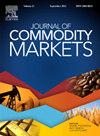是时候成熟了:抵押品、灵活性和对冲期限决策
IF 4.5
4区 经济学
Q1 BUSINESS, FINANCE
引用次数: 0
摘要
套期保值期限,即套期保值活动的时间跨度,是企业风险管理中一个重要但尚未得到充分研究的方面。本文对企业的对冲期限决策进行了分析,并进行了全面的实证分析。我们提出了三个假设来解释对冲期限。抵押品假说认为,较长的期限取决于对冲交易中作为抵押品的内部资源的可用性。匹配假说认为,公司将其对冲期限与债务和投资组合的期限相匹配。灵活性假说认为,以低成本改变经营或投资策略的能力有利于较短的期限。通过手工收集的石油和天然气行业衍生品头寸数据,我们发现了与这三种假设一致的证据。本文章由计算机程序翻译,如有差异,请以英文原文为准。
Time to get mature: Collateral, flexibility and the hedging horizon decision
Hedging maturity, i.e., how far out in time hedging activities stretch, is an important yet under-investigated aspect of corporate risk management. In this article, we analyse firms’ hedging maturity decision and carry out a comprehensive empirical analysis. We develop three hypotheses to explain hedging maturity. The collateral hypothesis states that longer maturities are predicated on the availability of internal resources that serve as collateral in a hedging transaction. The matching hypothesis argues that firms match their hedging maturity with the maturity of their debt and investment portfolios. The flexibility hypothesis holds that the ability to change operations or investment strategies at low cost is conducive to shorter maturities. Using hand-collected data on derivative positions in the oil and gas industry, we find evidence consistent with all three hypotheses.
求助全文
通过发布文献求助,成功后即可免费获取论文全文。
去求助
来源期刊

Journal of Commodity Markets
Multiple-
CiteScore
5.70
自引率
2.40%
发文量
53
期刊介绍:
The purpose of the journal is also to stimulate international dialog among academics, industry participants, traders, investors, and policymakers with mutual interests in commodity markets. The mandate for the journal is to present ongoing work within commodity economics and finance. Topics can be related to financialization of commodity markets; pricing, hedging, and risk analysis of commodity derivatives; risk premia in commodity markets; real option analysis for commodity project investment and production; portfolio allocation including commodities; forecasting in commodity markets; corporate finance for commodity-exposed corporations; econometric/statistical analysis of commodity markets; organization of commodity markets; regulation of commodity markets; local and global commodity trading; and commodity supply chains. Commodity markets in this context are energy markets (including renewables), metal markets, mineral markets, agricultural markets, livestock and fish markets, markets for weather derivatives, emission markets, shipping markets, water, and related markets. This interdisciplinary and trans-disciplinary journal will cover all commodity markets and is thus relevant for a broad audience. Commodity markets are not only of academic interest but also highly relevant for many practitioners, including asset managers, industrial managers, investment bankers, risk managers, and also policymakers in governments, central banks, and supranational institutions.
 求助内容:
求助内容: 应助结果提醒方式:
应助结果提醒方式:


